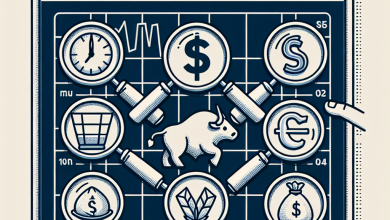
Three Key Questions Regarding the Global Economic Outlook
Economic research firm Capital Economics recently published a report highlighting three significant questions that are shaping the global economic outlook: the implications of the post-COVID economy, Europe’s economic underperformance, and key risks ahead.
1) How Should We Understand the Post-COVID Economy?: The report emphasizes that fiscal support was crucial in maintaining consumer demand during the pandemic, with excess savings contributing to increased spending afterward. However, it notes that the current policy mix in many advanced economies is imbalanced. It states, "Budget deficits are too large and interest rates are too high," suggesting a necessary shift towards tighter fiscal policies and looser monetary policies to restore stability. On the supply side, the pandemic caused considerable disruptions, pushing the aggregate supply curve inward, while fiscal and monetary expansions pushed the demand curve outward, resulting in the inflation observed in 2021-22. As these disruptions have eased, economies like the US have benefitted from an influx of immigrants, which has increased labor supply. This influx has enabled higher output with lower inflation, potentially leading to a soft landing where inflation can be managed without triggering a recession.
2) Why Has Europe Lagged Behind the US?: The report highlights a clear performance gap between Europe and the US. Since before the pandemic, the US economy has grown by nearly 10%, whereas the eurozone has only expanded by 3.9%. While one explanation is the prevalence of fixed-rate mortgages in the US, which have better protected households from rising interest rates, Capital Economics claims that the data does not fully support this idea. Instead, it points to insufficient fiscal support and the energy crisis following Russia’s invasion of Ukraine as critical factors in Europe’s economic struggles. Furthermore, structural weaknesses, particularly in Germany’s key industries, are expected to linger. The report predicts that the eurozone will continue to experience exceptionally low growth rates, with GDP forecasts remaining below the consensus. Although the European Central Bank is expected to gradually lower rates, this alone may not sufficiently stimulate growth in the region.
3) What Are the Key Risks to the Economic Outlook?: Capital Economics identifies various risks that could impact the global economic landscape. The primary concern is the potential for a hard landing or recession in the US, although the firm continues to believe that a soft landing is more likely. Political uncertainties and the upcoming US election also pose significant risks. Some measures suggested by Donald Trump during his campaign could potentially reduce US GDP and increase inflation, though the report suggests that these ideas might be tempered in practice. Additionally, China’s economic difficulties represent a risk, but Capital Economics notes that these challenges are structural, and a sudden collapse is not expected. Geopolitical risks, including tensions between China and Taiwan or instability in the Middle East, also remain significant. Lastly, escalating public debt in advanced economies is seen as a major long-term concern. The report warns of ballooning budget deficits and rising public debt burdens, especially in the context of imminent elections in the US and Germany, with any hint of fiscal irresponsibility possibly leading to turmoil in global bond markets. The report concludes by asserting that often the most significant risks are those that are most visible.
 GOOGL
GOOGL  META
META 


